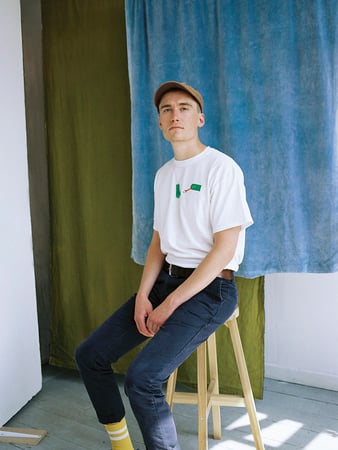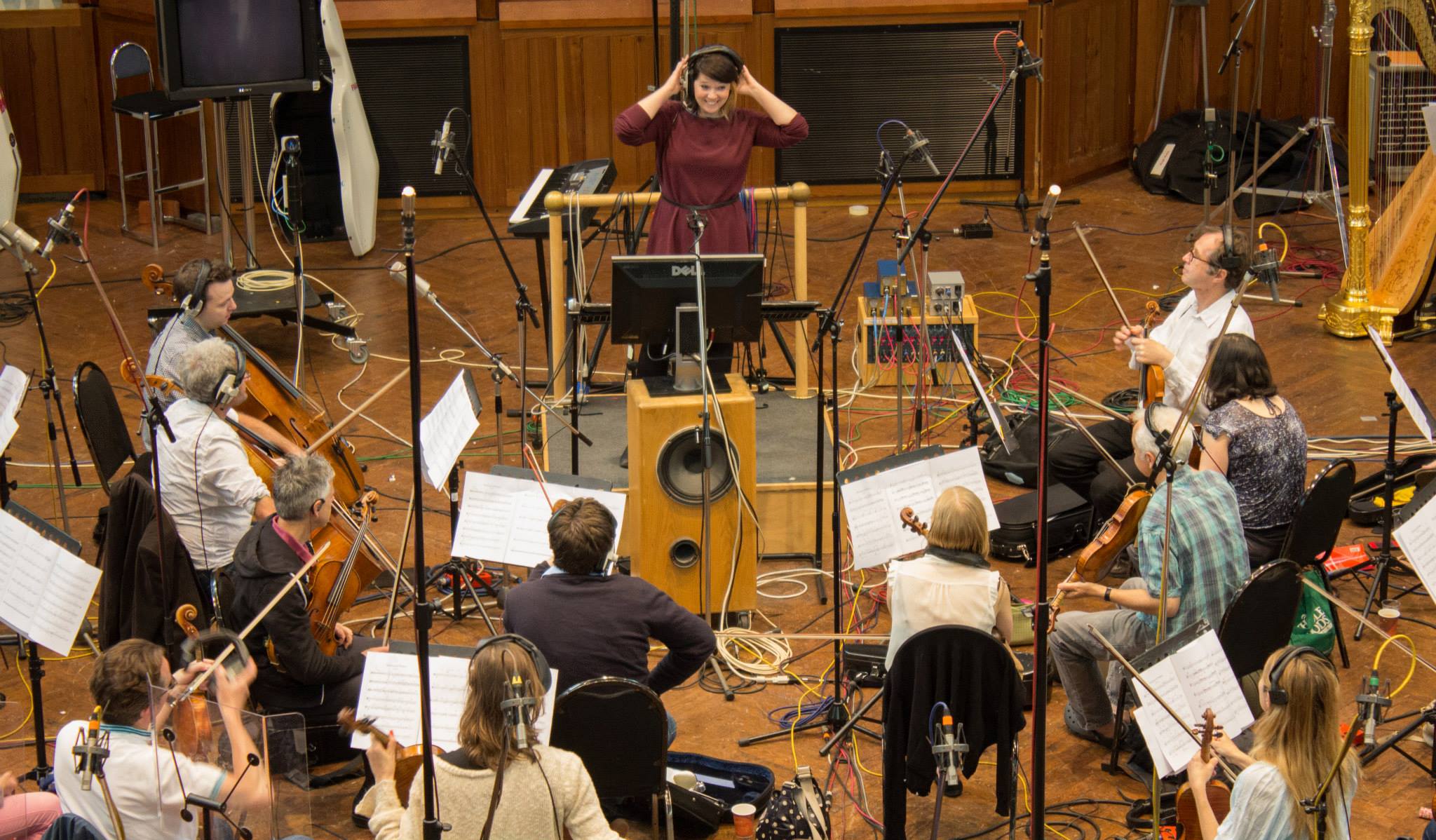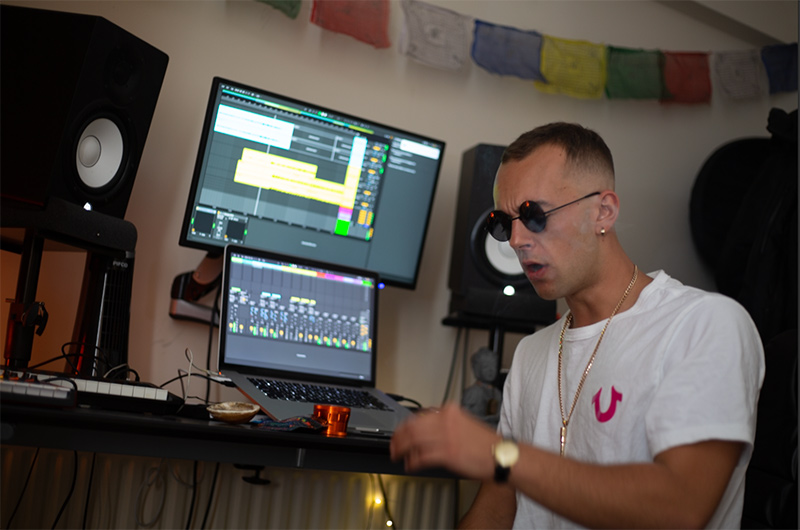You all have it inside of you. Members of the dBs Community weigh in on the importance of a signature sound.
As producers, DJs, composers or sound designers, we all desire a unique and identifiable sound. But to what extent should recognisability come at the expense of diversity and what can you do if you’re still working things out? We asked five members of the dBs Community to share their perspectives.
Kayla Painter, Composer, Producer and Sound Designer
![Kayla Painter [Photo Credit: Lucy Werett]](https://insider.dbsinstitute.ac.uk/hs-fs/hubfs/Kayla%20Painter.jpg?width=800&height=533&name=Kayla%20Painter.jpg)
Kayla Painter by Lucy Werrett
“Having a signature sound is what will make you stand out from the thousands of other producers and songwriters out there. So it is vital! As it becomes more affordable to have a decent home studio setup, the number of people producing is increasing rapidly. Whilst this is great on so many levels, it does make it harder to carve out a well-paid career in music. For me, it is really important for people to hear my track and know it is me, as it helps to build a fan base, but also to secure recognition in other areas such as radio plays, getting sync work, and bespoke playlists.”
Patrick Tipler AKA Delay Grounds, Electronic Music Production graduate

“My understanding of it is that music is just this kind of amorphous noise that has been filtered through the human experience feedback loop and had meaning attributed to it. Our experiences shape the way we perceive and connect to sound which I guess is why everyone’s music taste is different and why there is just an unfathomable amount of music in the world (maybe the universe who knows).
"Your taste in music and the music you produce is the product of the specific filter your experience of life has given you. If you want to figure out how to form a signature sound I think you have to be really honest and in tune with yourself. Perhaps the initial question could be rephrased to “How important is it to understand yourself?”
"I know I have spent a lot of time stressing about how good other people’s music is and comparing it to my own, I don’t think it’s really that helpful to do this as you will never be anyone else, unfortunately, you will only ever be you, so you might as well get used to it.
"The good news is that the act of making music is the perfect way to explore your innermost feelings and start to formulate a more in-depth understanding of yourself. Listening to the music you produce is a like looking into an audio mirror, a sonic parallel that is as alive and ever-growing as you are. From this point on it is a process of evaluation and growth which, when you relax and settle into the flow of it, can be life-affirming and enrich your measly existence on this mental lump of rock flying through infinity.
"Another thing I would say on this matter is that having a signature sound does not mean that you should restrict yourself. Everyone’s experience is totally different and it is that unique experience that will allow your true colours to shine, so just love what you do and for god’s sake just do it.
"I guess what I’m trying to say though is don’t worry about the oasis in the desert that is your signature sound. Concentrate on being an excellent human being, (try to) love yourself and what you do and your signature sound will manifest itself organically out of the good experiences you have. Trust in the universe bruhhh!”
Tess Tyler, Composer for screen, instrumentalist and artist

“Don’t try and be anyone else. The truth is you’ll never sound like them, ever.
"What I try to instil in my students really early on is to try to harness and curate, and look after your own unique voice. If you look at all genres of film composer whether it’s electronic, hybrid, atmos or these big thematic composers, you can tell them apart, you can hear who they are.
"As the industry is growing, directors and producers and game developers don’t want a jack of all trades, they don’t want someone who can write in the style of ‘X’. The directors will seek you out for what you are. So that would be my advice, just try and really stay true to what you love writing. Especially when you’re going to be writing 16 hours a day, you want to be enjoying what you’re doing. Listen and get inspired by the things that you love but try and find who you are as an artist, I think that’s really important.”
Ché Leader AKA Rivibes , MC, Producer, DJ and Sound for Games and Apps graduate

“I love it when people have a sound where, even though it’s completely varied, you know it’s them. Take Murlo – he’s produced a lot of grime but he also creates music using faster tempos and really out-there production methods. Yet still, his classic use of square waves and arpeggiators is easily identifiable. It’s kind of nostalgic and something that's relatable and easy to cling on to.
"As an artist, I’ve never wanted to just have one sound. When I produce under one of my aliases Rivibes, you know what you’re going to get. You’re going to get some eastern sounds, string samples, square waves and bass. That’s been the same for a long time – since I started making music. I love it. But with AV0ICE it’s been hard, because I want that sound that everybody can recognise, but for me, every beat has a completely different energy, it has a different tone, it requires a different vibe.
"So it can be difficult, but I’d say it comes with time. The more you produce, the more songs you make and the more you get out there will really have impact on your signature sound."
Charlotte Hughes AKA Plura, Electronic Music Production student

"I think that what’s most important is making music that is true to yourself and that you enjoy making. If you love making music that sounds like your favourite artists then that’s great! Inevitably we draw influence from the music around us and that is natural and useful, however personally I’ve found trying to replicate the sound of other artists can stifle my own creativity which leaves me feeling unfulfilled- often I don’t even realise I’m doing it.
"I would argue that through exploring your own creativity you will eventually happen upon your 'signature sound'. I don’t think this is something that happens over night and it involves taking creative risks and making a lot of rubbish and often incomplete music. I’ve found you happen upon creative processes and production techniques that work for you. I’m still very much developing my sound but my tunes are starting to become more cohesive."

